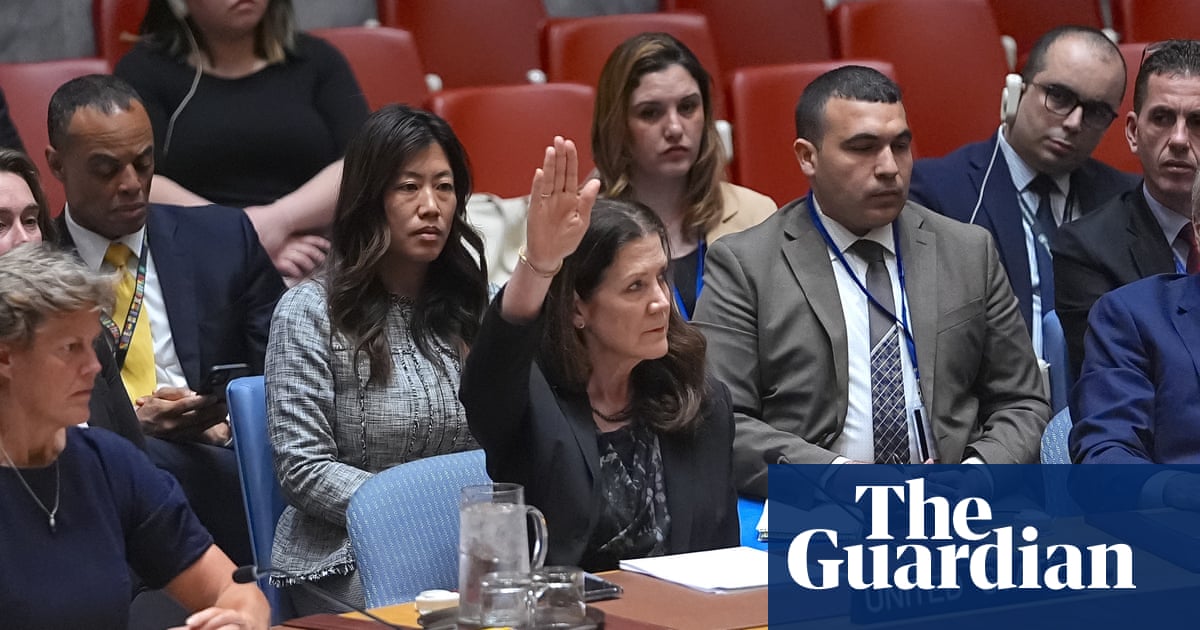The United States has vetoed aUnited Nationssecurity council resolution calling for an “immediate, unconditional and permanent ceasefire” in Gaza while the 14 remaining countries on the council voted in favour.
The vetoed resolution also called the situation inGaza“catastrophic”, and demanded the “immediate and unconditional lifting of all restrictions on the entry of humanitarian aid into Gaza and its safe and unhindered distribution at scale, including by the UN and humanitarian partners”.
It was the fifth time that the US has vetoed a security council draft ceasefire resolution in order to protect Israel. Washington vetoed a similar resolution in November, under the Biden administration, on the grounds that the ceasefire demand wasnot directly linked to the immediate and unconditional release of all hostages held by Hamas.
The text was co-sponsored by Algeria, Denmark, Greece, Guyana, Pakistan, Panama, South Korea, Sierra Leone, Slovenia, and Somalia. Russia, China, France and the UK also voted in favour.
The US representative, Dorothy Shea, called the draft resolution “unacceptable” saying that the United States “would not support any measure that fails to condemn Hamas and does not call for Hamas to disarm and leave Gaza”.
Israel also welcomed the US veto.
“I thank @POTUS and the U.S. administration for standing shoulder to shoulder with Israel and vetoing this one-sided resolution in the UN Security Council,” wrote Gideon Saar, Israel’s minister of foreign affairs. “The proposed resolution only strengthens Hamas and undermines American efforts to achieve a hostage deal.”
The UK supported the resolution. In a statement, its ambassador, Barbara Woodward, called Israel’s new aid system “inhumane” and said that Israel “needs to end its restrictions on aid now”.
“This Israeli government’s decisions to expand its military operations in Gaza and severely restrict aid are unjustifiable, disproportionate and counterproductive,” she said. “And the UK completely opposes them.”
The resolution was put up for a vote as the UN and aid agencies have warned of famine conditions in Gaza after a protracted embargo on aid and the shambolic rollout of a US- and Israeli-backed scheme called the Gaza Humanitarian Foundation (GHF).
“The world is watching, day after day, horrifying scenes of Palestinians being shot, wounded or killed in Gaza while simply trying to eat,” said the UN relief chief, Tom Fletcher, on Wednesday.
GHF, which has murky political backing and funding, announced that itsdistribution centres in Gaza would remain closed for a second day on Thursday morning. At least 27 people were killed and hundreds injured on Tuesday by Israeli fire as they waited for food at a GHF distribution point.
Woodward, the UK permanent representative to the UN, voiced support for a UN call for “an immediate and independent investigation into these events and for perpetrators to be held accountable”.
“Israel needs to end its restrictions on aid now: let the UN and humanitarians do their job to save lives, reduce suffering and maintain dignity,” she said.
